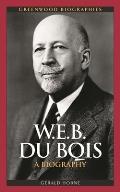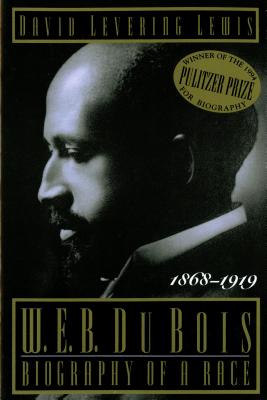

"It's very much a sense we have now, I think, of the center not holding."įor Lewis personally, however, things have seldom looked better. Of the two century-ends, he says, there was and is a feeling that things will never be the same again.

chair in history.Ĭomparing times, cultures and concepts is Lewis's thing.

Langston Hughes once said that "my earliest memories of written words are those of Du Bois and the Bible."ĭu Bois came to prominence during the last fin de siecle - a period that Lewis teaches at Rutgers University, where he commutes from his home on Capitol Hill. The story of Du Bois's life is itself the "Biography of a Race," Lewis says in the subtitle with an arrogance nearly as bold as his subject's.ĭu Bois of peasant roots and King James prose, of outsider's instincts and Harvard degrees, of Victorian restraint and Lotharian leanings, was a widely published scholar and social referee. Volume 2 is to follow.įor now, it is enough that Du Bois's distinguished brown and balding egg-shaped Ethiopian-like profile, as captured by the legendary Washington photographer Addison Scurlock, is shining out from the jacket of the book. It covers only the first half of Du Bois's 95 years, during which he was a cavalry leader in the early charge for civil rights and a pioneer in the newly revived field of Afrocentric thinking. He's a trim man with a clipped Anglican manner and a starched quality that seems to prop him up as he talks about the "great big book" he's spent the last eight years researching and writing. A modern-day Afro-Saxon of sorts, he's intent on achieving the best of at least two worlds. His lineage is old Atlanta and early Ivy League. And how appropriate that it has been compiled by a writer who is, if anything, almost astride the color line.ĭavid Levering Lewis's skin is nearly colorless - neither brown nor, thanks to a telltale sallow tint, white. But now political parochialism has subsided enough to celebrate a scholarly summary of the man. His late-life conversion to communism, no doubt, was somewhat to blame. Du Bois, "The Souls of Black Folk" (1903)įor years, it seemed, America's mainstream rushed by William Edward Burghardt Du Bois's lonely legacy, his genius.

The problem of the twentieth century is the problem of the color-line - the relation of the darker to the lighter races of men in Asia and Africa, in America and the islands of the sea.


 0 kommentar(er)
0 kommentar(er)
